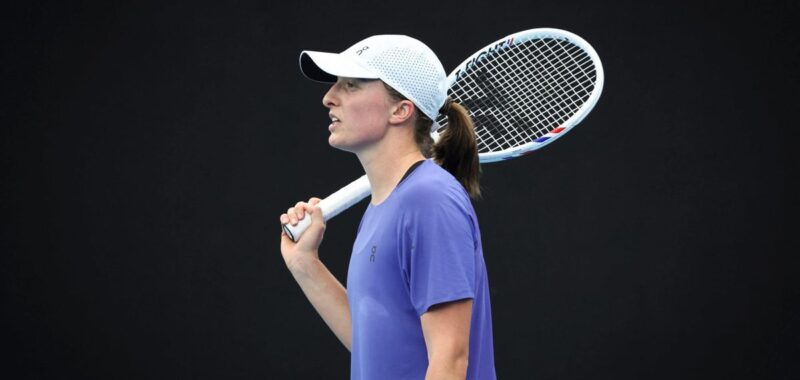This story has been updated Monday December 30 with confirmation of Polish anti-doping’s decision not to appeal.
Iga Swiatek says she is “not expecting” world anti-doping authorities to appeal the one-month doping ban she received after testing positive for a banned substance.
The Polish anti-doping agency (POLADA) confirmed Monday December 30 that it will not lodge an appeal with the Court of Arbitration of Sport (CAS). The World Anti-Doping Agency (WADA) has until January 21 to lodge an appeal of its own.
“After a comprehensive examination and verification of the full legal file of the athlete Iga Swiatek, [POLADA] has decided not to appeal the decision made by International Tennis Integrity Agency in the case of the tennis athlete,” a spokesperson for POLADA said.
“Conducting an in-depth and thorough analysis by Polish Anti-Doping Agency’s experts made it possible to make an objective decision that complied with anti-doping regulations.”
POLADA originally had until December 19 to lodge an appeal, but its requesting the full case file triggered an extension to December 31, as reported by Sport.Pl.
The five-time Grand Slam champion and world No. 2 discussed her suspension from tennis — during which she missed three tournaments and relinquished the world No. 1 ranking to Aryna Sabalenka — at a news conference for the United Cup in Sydney, where she is representing Poland. Swiatek, who August 12 tested positive for trimetazidine (TMZ), a heart medication, said: “I think people are understanding, most of them.”
Swiatek doesn’t “think there is any reason” for an appeal, adding that she has “no influence on what’s going to happen.”
The International Tennis Integrity Agency (ITIA) informed Swiatek of her positive test September 12 and provisionally suspended her. Swiatek appealed that provisional suspension within 10 days, arguing that her melatonin medication was contaminated.
Independent laboratory tests confirmed this argument and her appeal was successful, so her provisional suspension was not publicly disclosed until late November, when the ITIA concluded its investigation and awarded a one-month ban. “The ones who read the documents and are aware of how the system works, they know that I had no fault and I had no influence on what was going on,” Swiatek said.

GO DEEPER
Explaining Iga Swiatek’s doping ban, why it was kept secret and what it means for tennis
Swiatek served 22 days of that ban from September to October and the remainder between November and December. While rueful of its impact on her world ranking, she added that it “must be much harder” to spend extended time away from tennis.
“It’s terrible for any player who has to go through this,” she said.
WADA has lodged an appeal into men’s world No. 1 Jannik Sinner’s doping case which could result in a ban of up to two years for the Italian if upheld. It will not be heard before the end of the Australian Open, the first Grand Slam tournament of the 2025 season which starts January 12 in Melbourne. Sinner and Sabalenka are the defending singles champions, with Swiatek exiting the 2024 event in the third round.
Swiatek opened her United Cup campaign December 30, with a 6-1, 6-0 win over Norwegian world No. 404 Malene Helgo.
(David Gray / AFP via Getty Images)

